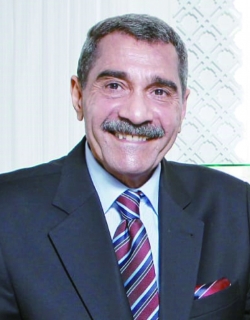Country report : International Women's Day

Having a central place in the heroic struggle of the Algerian people against the colonizer the Algerian woman has been equal to man in terms of mobilization and militant engagement. This role was decisive in the final victory of the Algerian Revolution (1954-1962): many freedom fighters rose to the rank of MartyI’s and revolutionary icons.
At independence in 1962, the Algerian women mobilized for the reconstruction of the countη in all areas to build an Algeria worthy of the" sacrifices of the Martyrs of the Revolution. Algeria very early considered that the principle of gender equaliη is a fundamental human right and a foundation for the promotion of equal opportunities. Non-discrimination based on gender was established as a general principle in Algeria.
Algeria has put in place a legal framework and policies to promote the rights of women and combat gender-based discrimination in the economic social or political fields.
The main dimensions of public action in favor of gender parity and equaliη in Algeria are :
- Elimination of discrimination against women, especially on the job market ;
- combating violence against women ;
- Consolidation of girls’ education ;
- widening the participation of women in all areas of economic and politicallife ;
- improving women’s access to maternal health care.
Among the concrete results of this engagement policy, we can mention:
- the number of active women in Algeria was 2,435 million in 2018, i.e. almost 20% of the total active population;
- 2/3 ofhigher education graduates are women ;
- parity has been enshrined in terms of remuneration since 1962 with the principle "With equal grade, equal salary"
- women represent a significant share of employees in the education, health, justice and security sectors ;
- According to a study published in 2017 by the National Statistics Office, women represent 11% of management positions;
- In 2017, more than 143,000 women had a business register ;
- Between 2010 and 2018, the number from public support mechanisms for enterprises knew a substantial evolution: financed in 2010 to 17% in 2018 ;
- the number of women elected to the lower house of Parliament increased from 30 in 2007 (out of 389 deputies) to 146 in 2012 (out of 462 deputies), thanks to the Organic Law of January 12, 2012. 29% ofthe members ofthe lower house are women in 2017;
- As regards municipal assemblies, the representation of women increased from 0.8% in 200’7 to 17% in 2012.
The legal arsenal protects the rights of women:
- the Family Code, revised in 2005, has enabled societal progress on marriage and the father’s obligations in the case of divorce ;
- the Nationality Code, revised in 2005, enshrines the transmission of nationaliη by maternal filiation;
- the Criminal Code provides enhanced protection against harassment and rape.
In addition, institutional mechanisms have been set up to anchor panη and the rights of women" with the joint advisory body "National Council for the Family and Women" (March 8, 2007) and the "National Center for Studies, Information and Documentation on Women "(November 2013).
Algerian women therefore assume a historic role, that of safeguarding the authenticity of the Algerian people,educating future generations and building a tolerant and united society.

